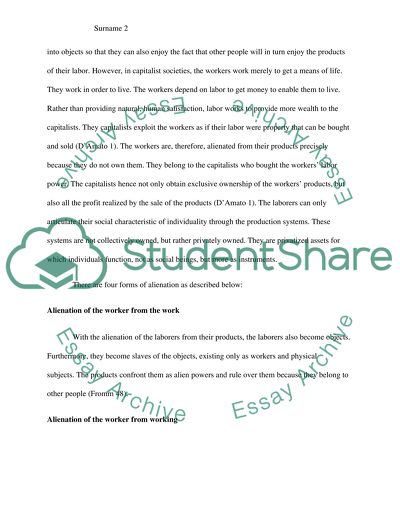Retrieved from https://studentshare.org/philosophy/1606941-explain-and-evaluate-the-theory-of-alienation-marx-develops-in-the-economic-and-philosophic-manuscripts-of-1844-what-exactly-is-alienation-what-is-its-relationship-to-capitalism-what-are-the-four-forms-of-alienation
https://studentshare.org/philosophy/1606941-explain-and-evaluate-the-theory-of-alienation-marx-develops-in-the-economic-and-philosophic-manuscripts-of-1844-what-exactly-is-alienation-what-is-its-relationship-to-capitalism-what-are-the-four-forms-of-alienation.


